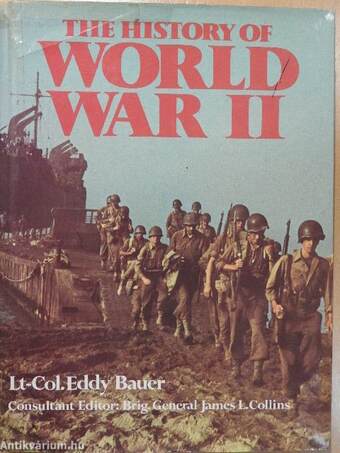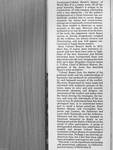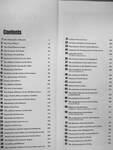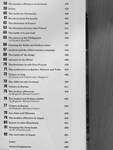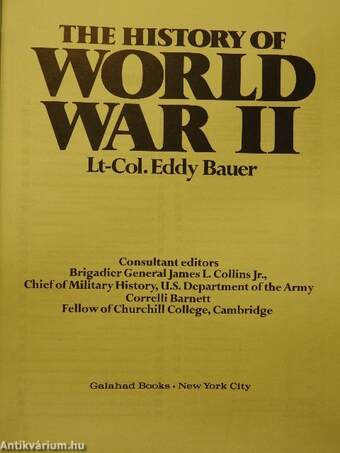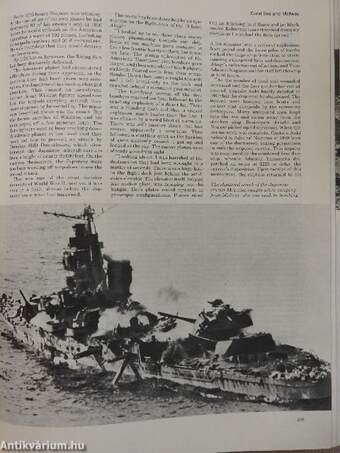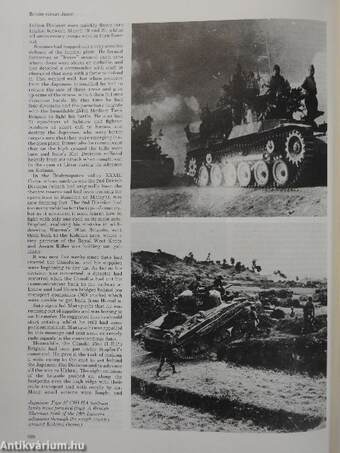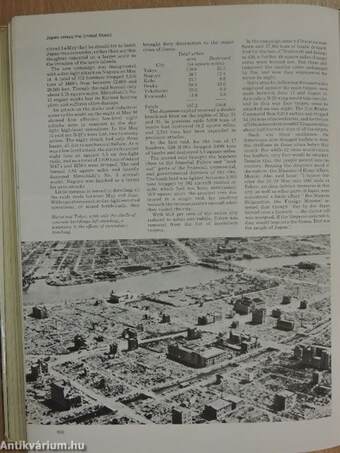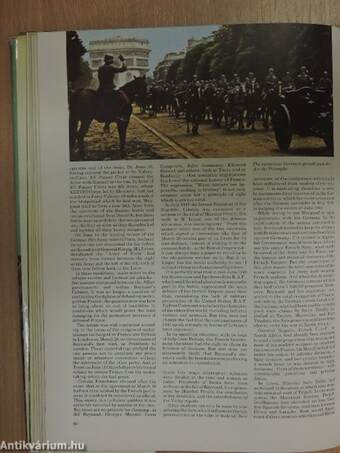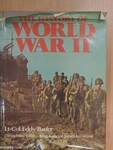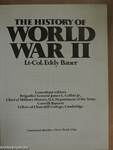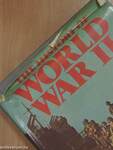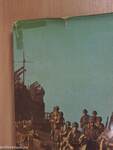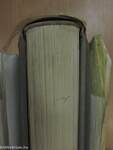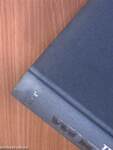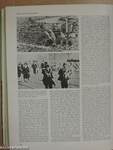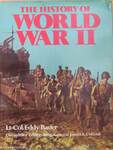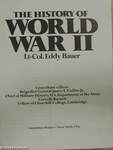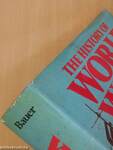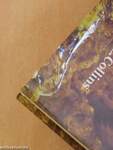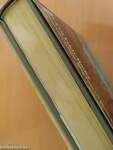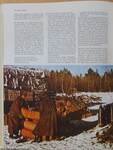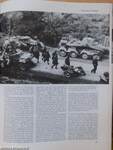1.067.297
kiadvánnyal nyújtjuk Magyarország legnagyobb antikvár könyv-kínálatát

VISSZA
A TETEJÉRE
JAVASLATOKÉszre-
vételek
The History of World War II
| Kiadó: | Galahad Books |
|---|---|
| Kiadás helye: | New York |
| Kiadás éve: | |
| Kötés típusa: | Vászon |
| Oldalszám: | 680 oldal |
| Sorozatcím: | |
| Kötetszám: | |
| Nyelv: | Angol |
| Méret: | 30 cm x 23 cm |
| ISBN: | 0-88365-708-3 |
| Megjegyzés: | Fekete-fehér és színes fotókkal. |
naponta értesítjük a beérkező friss
kiadványokról
naponta értesítjük a beérkező friss
kiadványokról
Fülszöveg
Lieutenant-Colonel Bauer's history of
World War II is a classic work. Of all the
great histories, Bauer's is unique in its
combination of wide-ranging scholarship
with a rare objectivity - for the author's
background as a Swiss historian has un-
doubtedly enabled him to survey dispas-
sionately the claims and controversies,
arising out of nationally centred histories,
that have tended to dominate so many
accounts in the past. However, this de-
tachment in no way detracts from the force
of the work; the judgments which Bauer
arrives at, having scrupulously weighed
all the evidence, are always incisive and
illuminating, and may well appear con-
troversial to Anglo-Saxon readers.
Since Colonel Bauer's death in 1972,
there has, of course, been extensive re-
search and new facts have come to light.
Some of the best American and British
historians have incorporated these new
discoveries into the text, bringing the book
fully up to date. Brigadier General James
L.... Tovább
Fülszöveg
Lieutenant-Colonel Bauer's history of
World War II is a classic work. Of all the
great histories, Bauer's is unique in its
combination of wide-ranging scholarship
with a rare objectivity - for the author's
background as a Swiss historian has un-
doubtedly enabled him to survey dispas-
sionately the claims and controversies,
arising out of nationally centred histories,
that have tended to dominate so many
accounts in the past. However, this de-
tachment in no way detracts from the force
of the work; the judgments which Bauer
arrives at, having scrupulously weighed
all the evidence, are always incisive and
illuminating, and may well appear con-
troversial to Anglo-Saxon readers.
Since Colonel Bauer's death in 1972,
there has, of course, been extensive re-
search and new facts have come to light.
Some of the best American and British
historians have incorporated these new
discoveries into the text, bringing the book
fully up to date. Brigadier General James
L. Collins, Chief of Military History, De-
partment of the Army, has described
Bauer's work as follows:
"Colonel Bauer, from the depths of his
profound study and his understanding of
humanity, has produced an extraordinar-
ily well balanced account of the conflict.
His story, illuminated by many maps and
enlivened with authentic pictures of the
times, many in color and only recently
discovered, sharpens and deepens our
awareness of the conflict and makes clear
the forces driving the strategies, the tac-
tics, and even the individuals of the na-
tions at war. Tb understand these free from
ideological bias, is to understand better
how to avoid a future cataclysm. Pearl
Harbor, Bataan and Corregidor, Kas-
serine and Cassino, the Solomons and
Leyte Gulf, Normandy and the Ardennes,
Okinawa and Iwo Jima are stamped on
American memories as deeply as are
Stalingrad and the Battle of Britain on the
minds of other participants. A group of
distinguished scholars has undertaken to
amplify and deepen Colonel Bauer's
treatment of those phases of transcendent
American bias. Perhaps I am showing my
American bias, but I feel that these addi-
tions strenghten and improve the work."
This book, a work of profound scholarship
and penetrating judgment, is a definitive
general history of World War II. Vissza
Témakörök
- Idegennyelv > Idegennyelvű könyvek > Angol > Történelem > Egyéb
- Történelem > Idegennyelvű > Angol
- Történelem > Legújabb kor > II. világháború > Összefoglalók, tanulmányok
- Történelem > Legújabb kor > II. világháború > Hadtörténet
- Történelem > Monográfiák > Világtörténelem
- Történelem > Hadtörténet > Háborúk, csaták
- Történelem > Hadtörténet > Hadtörténeti gyűjtemények, adattárak



